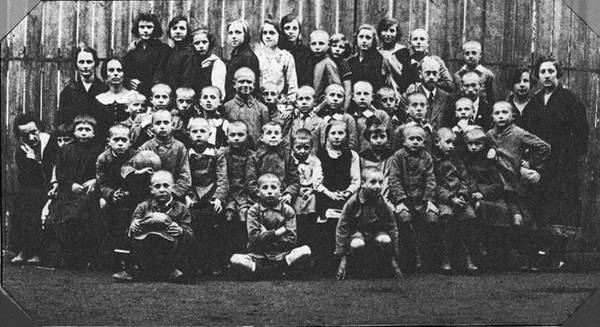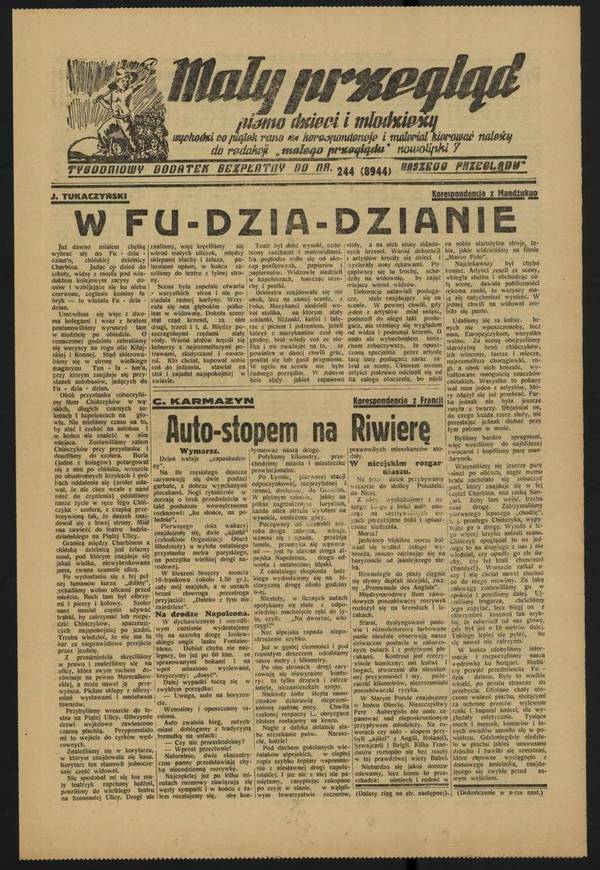Janusz Korczak
Del 6 al 24 de octubre de 2025
Vestíbulos de los edificios A y B de Cantoblanco
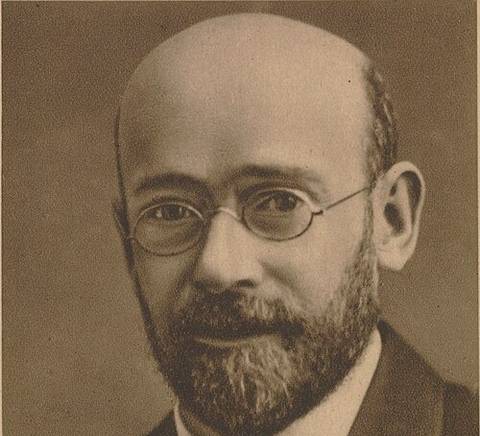
Introducción
La Biblioteca de la Universidad Pontificia Comillas desea expresar su más sincero agradecimiento al Instituto de Cultura Polaco por la generosa colaboración que ha hecho posible la presentación de la exposición dedicada a Janusz Korczak en nuestra institución. Gracias a su apoyo, nuestra comunidad universitaria tiene la oportunidad de acercarse a la vida y legado de una de las figuras más inspiradoras de la pedagogía contemporánea, cuya influencia y ejemplo siguen siendo hoy plenamente vigentes.
El compromiso ético y humano de Janusz Korczak, testimoniado en su obra literaria, pedagógica y vital, representa un mensaje universal que interpela especialmente a quienes trabajamos en el ámbito de la formación, la investigación y el acompañamiento de nuevas generaciones. La presencia de esta exposición en nuestra Biblioteca constituye una ocasión para difundir ese mensaje, permitiendo que estudiantes, docentes e investigadores se acerquen no solo a sus escritos y propuestas educativas, sino también a la coherencia con la que vivió y transmitió sus ideales.
Reciban, por tanto, nuestra gratitud y la seguridad de que esta colaboración tendrá un impacto perdurable en quienes visiten la exposición y descubran en Janusz Korczak un modelo de humanidad y educación integral.

---
The Library of Universidad Pontificia Comillas wishes to express its most sincere gratitude to the Polish Cultural Institute for the generous collaboration that has made possible the presentation of the exhibition dedicated to Janusz Korczak in our institution. Thanks to their support, our university community has the opportunity to become acquainted with the life and legacy of one of the most inspiring figures of contemporary pedagogy, whose influence and example remain fully relevant today.
The ethical and human commitment of Janusz Korczak, testified through his literary, pedagogical, and personal work, represents a universal message that particularly speaks to those of us engaged in education, research, and the guidance of new generations. The presence of this exhibition in our Library provides an occasion to disseminate that message, allowing students, faculty, and researchers to approach not only his writings and educational proposals, but also the coherence with which he lived and embodied his ideals.
Please accept, therefore, our gratitude and the assurance that this collaboration will have a lasting impact on all those who visit the exhibition and discover in Janusz Korczak a model of humanity and integral education.
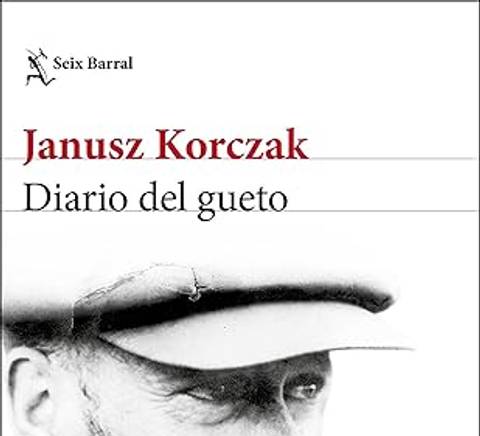
Presentación
Descubrí a Janusz Korczak a través de un libro que llegó a mis manos casi por azar: Diario del gueto, publicado por Seix Barral en 2018. Aquellas páginas me estremecieron y me transformaron. Me asomaron a la fuerza y al ejemplo de un hombre que, en medio de la barbarie, supo sostener la dignidad de la infancia con palabras, gestos y ternura. Ese descubrimiento no lo viví en soledad. Lo compartí con mi colega y amigo, el profesor Juan Carlos Torre. Juntos nos sumergimos en la figura de Korczak, conversamos largamente sobre su legado y, con el entusiasmo de quienes sienten haber hallado un tesoro oculto, nos esforzamos por sacarlo a la luz y darlo a conocer. Desde entonces, hablar de Korczak es también evocar la complicidad de aquella búsqueda compartida y la certeza de que su mensaje sigue vivo.
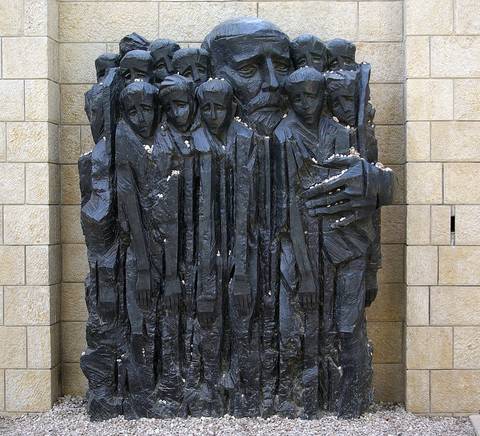
Korczak fue pediatra, escritor, pedagogo y, sobre todo, un hombre que dedicó cada día de su existencia a cuidar y educar a los más vulnerables. En medio de la oscuridad del gueto de Varsovia, siguió defendiendo la dignidad de la infancia con gestos cotidianos de respeto, escucha y ternura. Y en el momento más terrible, cuando se le ofreció la posibilidad de salvarse, eligió permanecer junto a los niños de su orfanato hasta el final, en ese último viaje hacia Treblinka.

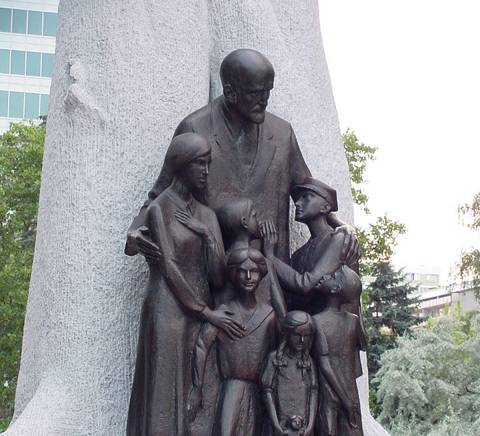
La pedagogía de Janusz Korczak se fundamenta en el reconocimiento del niño como sujeto de derechos y como persona completa, no como un adulto “en formación”. Entre sus aportes más significativos destacan: la defensa de la autonomía infantil mediante la participación activa en la vida comunitaria; la creación de instituciones democráticas dentro del orfanato, como el parlamento y el tribunal infantil, que fomentaban la responsabilidad y la justicia; la importancia de la autoexpresión a través de la escritura y el juego; y la convicción de que la educación debía basarse en el respeto, la escucha y el afecto. Su práctica educativa no solo anticipó muchos principios de la pedagogía contemporánea y de la Convención sobre los Derechos del Niño, sino que los llevó a cabo en condiciones extremas, situando la dignidad infantil como un valor irrenunciable, que debía protegerse siempre, incluso en los contextos más adversos.
Esta exposición es un homenaje, pero también una invitación. Un homenaje a un hombre que supo educar desde la justicia y la ternura; y una invitación a preguntarnos qué significa hoy cuidar, educar y acompañar. Ojalá este recorrido despierte en cada visitante la misma emoción y el mismo compromiso que nosotros sentimos al descubrir su vida y su obra.
Gracias por ser parte de este homenaje a Janusz Korczak.
---
Presentation
I discovered Janusz Korczak through a book that came into my hands almost by chance: Ghetto Diary, published by Seix Barral in 2018. Those pages shook me and transformed me. They revealed to me the strength and example of a man who, in the midst of barbarity, knew how to uphold the dignity of childhood with words, gestures, and tenderness. I did not experience that discovery alone. I shared it with my colleague and friend, Professor Juan Carlos Torre. Together we immersed ourselves in Korczak’s figure, spoke at length about his legacy, and, with the enthusiasm of those who feel they have found a hidden treasure, we strove to bring it to light and share it. Since then, speaking of Korczak also means evoking the complicity of that shared search and the certainty that his message is still alive.
Korczak was a pediatrician, writer, educator, and, above all, a man who devoted every day of his life to caring for and educating the most vulnerable. In the darkness of the Warsaw ghetto, he continued to defend the dignity of childhood through daily acts of respect, listening, and tenderness. And in the most terrible moment, when he was given the chance to save himself, he chose to remain with the children of his orphanage until the end, on that final journey to Treblinka.
Janusz Korczak’s pedagogy is based on the recognition of the child as a subject of rights and as a complete person, not merely as an “adult in formation.” Among his most significant contributions are: the defense of children’s autonomy through active participation in community life; the creation of democratic institutions within the orphanage, such as the parliament and the children’s court, which fostered responsibility and justice; the importance of self-expression through writing and play; and the conviction that education must be grounded in respect, listening, and affection. His educational practice not only anticipated many principles of contemporary pedagogy and of the Convention on the Rights of the Child, but also put them into practice under extreme conditions, making the dignity of childhood a non-negotiable value that must always be protected, even in the harshest contexts.
This exhibition is a tribute, but also an invitation. A tribute to a man who knew how to educate through justice and tenderness; and an invitation to ask ourselves what it means today to care, to educate, and to accompany. May this journey awaken in each visitor the same emotion and the same commitment that we felt when we discovered his life and his work.
Thank you for being part of this tribute to Janusz Korczak.
Dra. Dña. Leonor Prieto Navarro
Facultad Ciencias Humanas y Sociales
Universidad Pontificia Comillas
Créditos / Credits:
Exposición Janusz Korczak - Instituto Polaco de Cultura en Madrid
- Autor / Author:
D. Andrzej Krynski
- Producción / Production:
Instituto de la Memoria Nacional (Polonia)
- Coordinación / Coordination:
Instituto Polaco de Cultura en Madrid
Exposición Bibliográfica - Biblioteca de la Universidad Pontificia Comillas
- Coordinación / Coordination:
Dra. Dña. Leonor Prieto Navarro
Facultad de Ciencias Humanas y Sociales
Universidad Pontificia Comillas
- Presentación / Presentation:
Dra. Dña. Leonor Prieto Navarro
Facultad de Ciencias Humanas y Sociales
Universidad Pontificia Comillas
- Texto / Text:
Janusz Korczak, educador
Dr. D. Juan Carlos Torre Puente
ESCUNI, Centro de Enseñanza Superior (Madrid)
- Selección y comentario bibliográfico / Bibliographic selection and commentary:
Dña. Blanca Herranz Vírseda
Servicio de Biblioteca
Universidad Pontificia Comillas
- Descripciones bibliográficas / Bibliographic description:
Grupo de catalogación de la Biblioteca de la Universidad Pontificia Comillas
- Cartelería / Display material:
Idea original: Instituto Polaco de Cultura
- Diseño Web / Web design:
D. Ángel Alvarez Mendoza
Dña. Daphné Vidalie
Grupo de Visibilidad del Servicio de Biblioteca
Universidad Pontificia Comillas
Las imágenes utilizadas están libres de derechos y han sido obtenidas de Pixabay https://pixabay.com, Wikimedia Commons https://commons.wikimedia.org o han sido cedidas para esta exposición por el profesor Juan Carlos Torre Puente.

